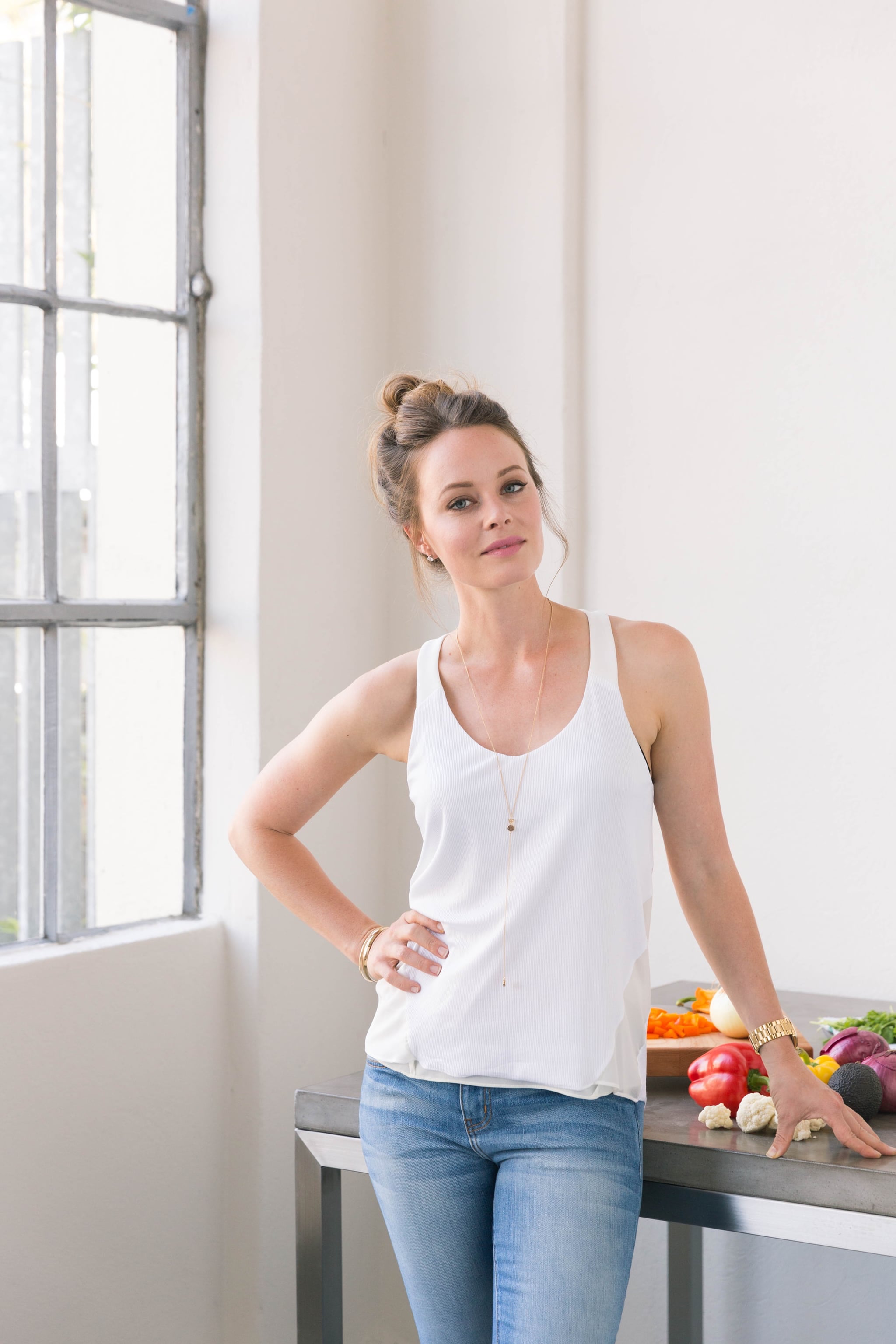

People choose a vegan diet for so many reasons - to reduce inflammation, alleviate one's environmental impact, and for the compassion of animals. For personal trainer and PhD candidate Liz Letchford, MS, ATC, it was for all of the aforementioned.
"I happened to befriend a few incredible farmers and manufacturers from New Zealand and China who were in town attending a conference focused on sustainability and ethics in their industries. They taught me how beneficial ethical farming could be, not only to the animals but to the consumers," Liz told POPSUGAR. "When I learned about the reality of the life and death of the animals that supply a majority of America's meat, I was appalled . . . almost instantly turned off by meat. I didn't want to be supporting a cause that was unethical, unhealthy, and unsustainable. To this day, I choose to support businesses and farms that share my same values. I value ethics and integrity in all aspects of my life, including my diet."
But after years of eating entirely plant-based, her body was feeling deficient. One of the primary factors in her switch was the necessity of so many supplements, which didn't work for her body. "For athletes, the biggest downfall of an entirely plant-based diet is the nutrient deficiencies," she said. "If you adopt a vegan lifestyle, you're likely deficient in iron and B12 - and potentially omega-3 fatty acids, zinc, iodine, calcium, and vitamin D," she said, sourcing a 2009 study from The American Journal of Clinical Nutrition. She noted that "plant-based foods tend to have lower digestibility of nutrients," making it potentially quite challenging for your body to get what it needs.
"Using powders and supplements to keep my body at a healthy homeostasis is truly burdensome."
Not only is supplementing difficult - absorption and bioavailability is not always foolproof - but it wasn't in line with her whole-foods approach to eating and nutrition. "I have really loved so many aspects of a plant-based diet," she said. "I experience less inflammation and I feel good about lessening my environmental impact, but using powders and supplements to keep my body at a healthy homeostasis is truly burdensome." Once she realized her body had an aversion to soy, that was the dealbreaker for being 100 percent vegan.
"Finding enough protein to fuel my active lifestyle and recover from my strength training [without soy] was too challenging," she said. She has since adopted what she calls a "nutritarian" diet - an approach to eating that focuses on the most nutrient-dense foods possible. Not only does this fall in line with her whole-foods-only lifestyle, but it still allows her to be 95 percent plant-based while improving her overall health and optimizing her nutrition for physical activity.
OK . . . but what does it mean, right? It's a pretty loose definition, but still heavily plant-based - so not too different from vegan. "A nutritarian can be vegan," she said, "but you can also incorporate a limited amount of animal protein." The focus is on micronutrients - this comes from unprocessed, plant-based foods, lots of fresh seasonal produce, nuts, seeds, and legumes. And as she mentioned, it can include a small amount of animal proteins.
For Liz's diet specifically, this means "mostly eggs, and occasionally humanely treated animal proteins," she told POPSUGAR. "For some reason chicken still turns me off, so I steer away from that - just a personal preference!" When it comes to choosing humane products, she shared that "Whole Foods has a rating system," that you can refer to when making these choices. "Otherwise I go to markets and restaurants that share my same values and only purchase humanely treated and high-quality meats."
The list of diet don'ts? Obviously nutritarians don't eat processed foods, but in addition to that, Liz advised removing all "nutrient-depleted foods" from your diet. Think: refined grains, added sugars and sweeteners, etc.
This wholesome, "veganish" diet and approach to nutrition has allowed Liz to feel more free in her diet choices, get the right amount of micronutrients and amino acids, and still reap the benefits of a plant-based diet. "I feel energized, recover quickly from exercise, and reduce my impact on the environment," said Liz. "Now that I've added a small amount humanely treated animal protein, it frees me from feeling too ridiculously restricted in my diet, in which I refrain from dairy, corn, soy, nightshades, and sugar." She told us that she feels great and is "able to replace each of those food groups with more healthy, sustainably sourced foods that work well with my unique digestion and nutrition needs."






0 comments :
Post a Comment